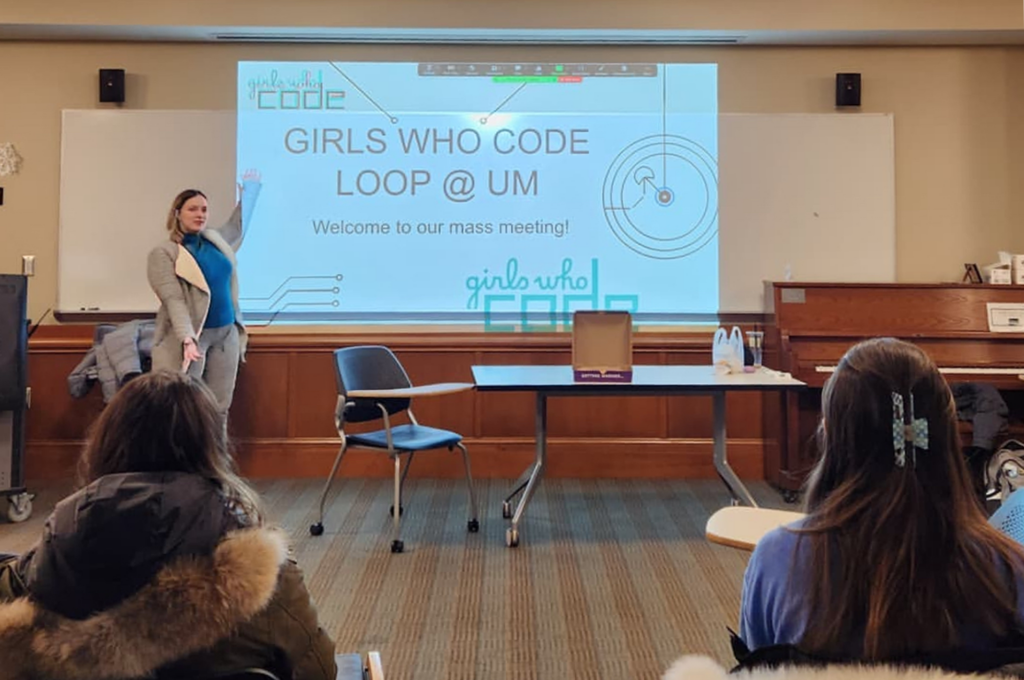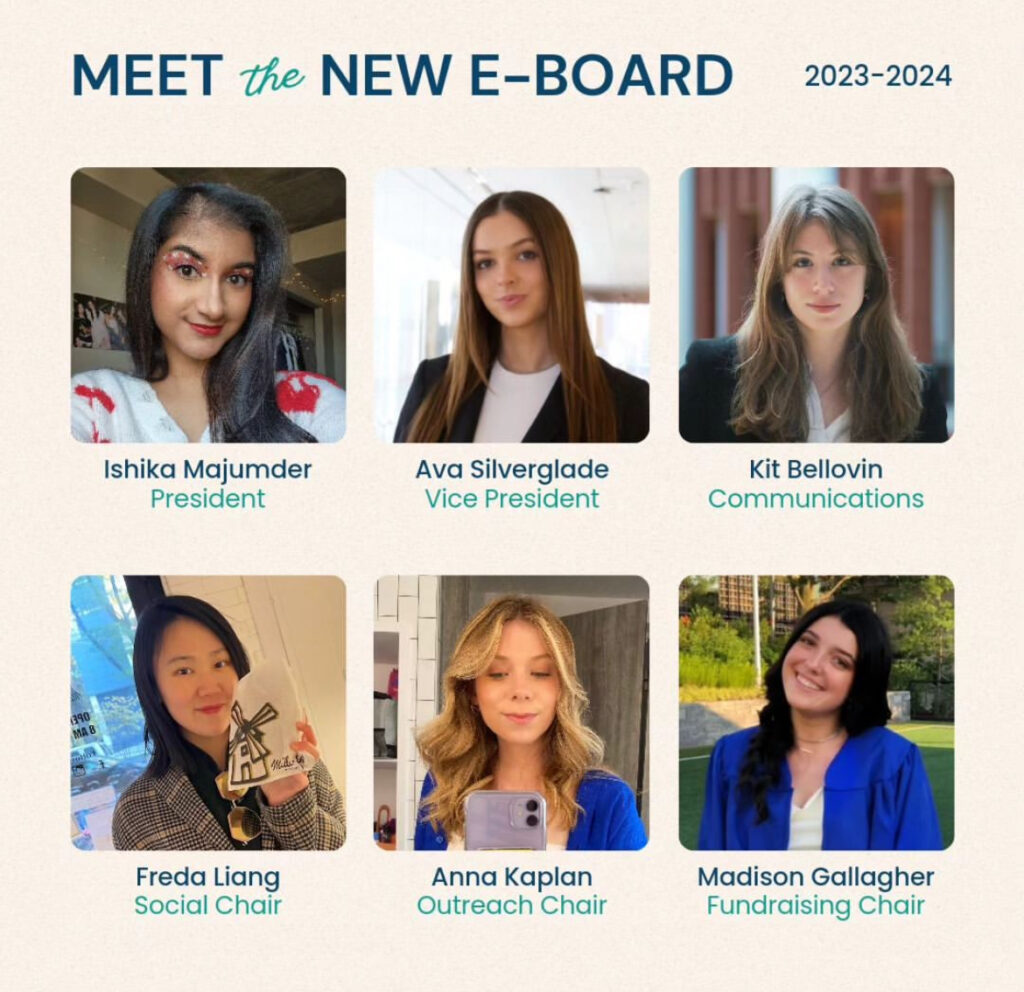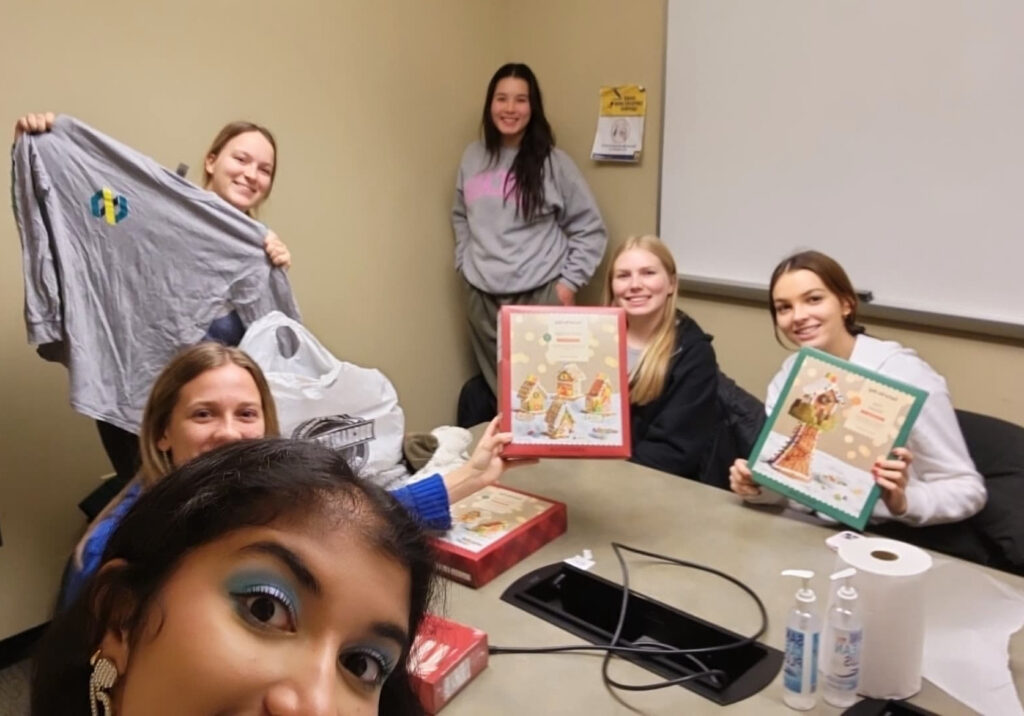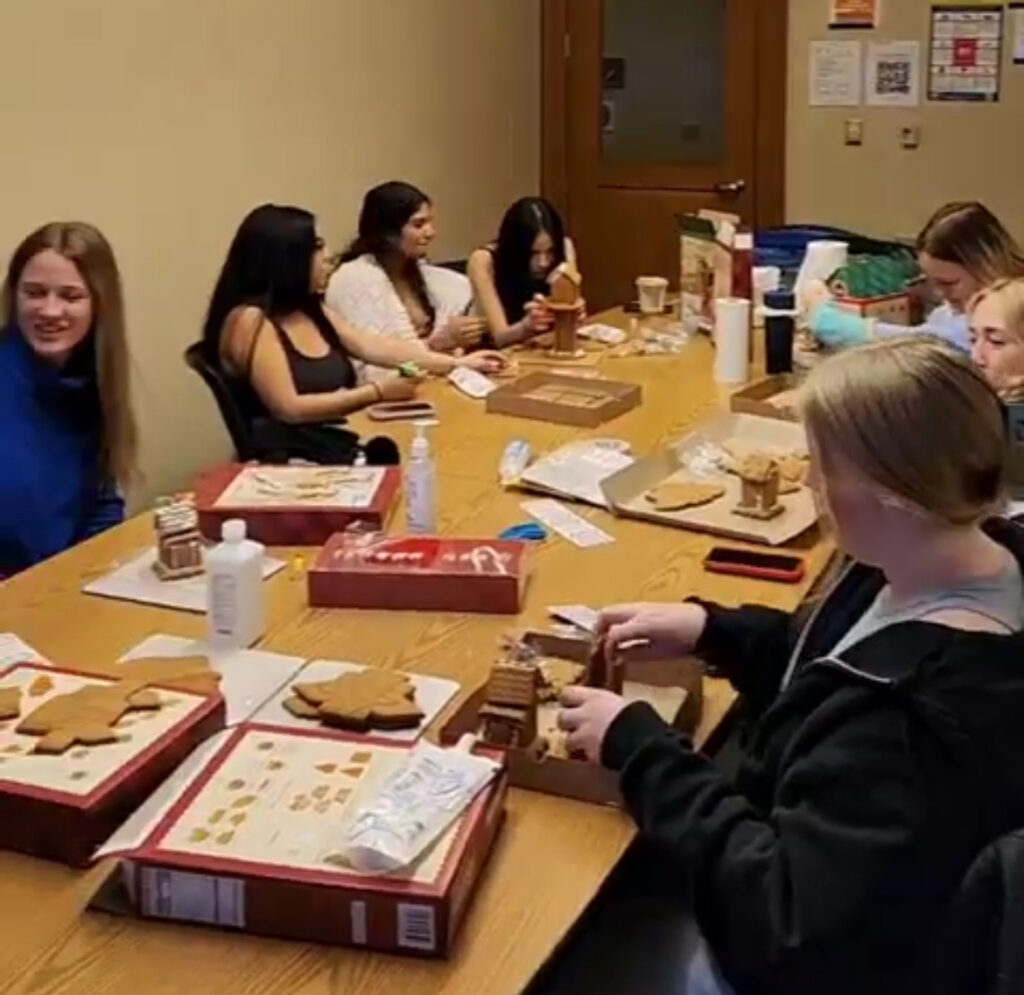Girls Who Code breaking down gender barriers in CS

Computer science has long been a male-dominated field, and a lot of work remains to be done to achieve gender parity. Given that just 1 in 5 computer science undergraduate degree earners are women, it is clear that women still face numerous challenges in accessing and succeeding in the CS field.
Student organization Girls Who Code (GWC) aims to break down these barriers by providing academic, professional, and social support for young women in computing disciplines. A national-level nonprofit organization, GWC started in 2012 with the goal of supporting women in computer science by increasing opportunities for women to build their technical skills and learn from other women in the field.
With over 1,500 chapters at high schools and universities across the country and more than 500,000 alumni, GWC has already played an enormous role in increasing the number of women in computer science.
The U-M chapter of GWC started in 2019 with the aim of providing a space for women in computer science and related fields to come together, find support, and learn from each other as they complete their academic and professional journeys.

“Women are definitely a minority in computer science and still face a lot of barriers in entering the field,” said CS undergraduate and GWC Vice President Ava Silverglade. “Even at Michigan, the disparity is very prevalent in CS classes. It can be difficult for women students to feel like they really belong in the major.”
GWC is open to all women who are pursuing a CS major, or are simply interested in learning more about coding, at U-M. Through regular events, workshops, and other resources, the organization seeks to provide a place for women in CS to come together and connect with others facing similar challenges.
“Being a woman in computer science can be a challenge,” said Ava. “It can make all the difference to meet other people who are in a similar situation. It’s definitely helped my own confidence.”
Central to GWC’s programming are its biweekly meetings, where women studying or interested in computer science can meet and learn from older, more experienced students. Through these meetings, members are able to forge connections with potential mentors and study partners, and gain insight on various programs and classes at U-M.
GWC also organizes workshops that explore different topics within coding and engineering, allowing members to acquire new skills to help them succeed at U-M. Recent sessions have included coding workshops centered around Python, Java, and other programming languages, as well as workshops geared more toward professional development. Other GWC events have included hackathons and guest speaker series featuring alumni and other women who have had successful careers in CS.


Already, GWC has reached over 400 women on the U-M campus, with an active membership of around 100 students. Going forward, the group hopes to further expand its reach and continue providing vital resources to women CS students.
“Our goal is to continue growing our organization and reaching out to more CS students, as well as women who just want to learn more about coding,” said Ava. “We want to empower women to feel more confident in CS and feel like they belong here.”
An emerging component of the organization’s programming, and another of its goals in the coming years, is community outreach. Last semester, the group connected with a high school GWC chapter in California and hosted a Zoom webinar where U-M students answered teens’ questions about pursuing a CS major in college. Going forward, the group hopes to expand their outreach efforts by partnering with more GWC chapters and local schools to encourage younger generations of students to learn about and pursue CS.
“The outreach and mentorship that GWC provides is really amazing,” described Ava. “It’s not only allowed me to help younger students but has also made me more confident in my own abilities.”
For more details about the U-M Girls Who Code College Loop and their events, you can visit their Instagram.
 MENU
MENU 
